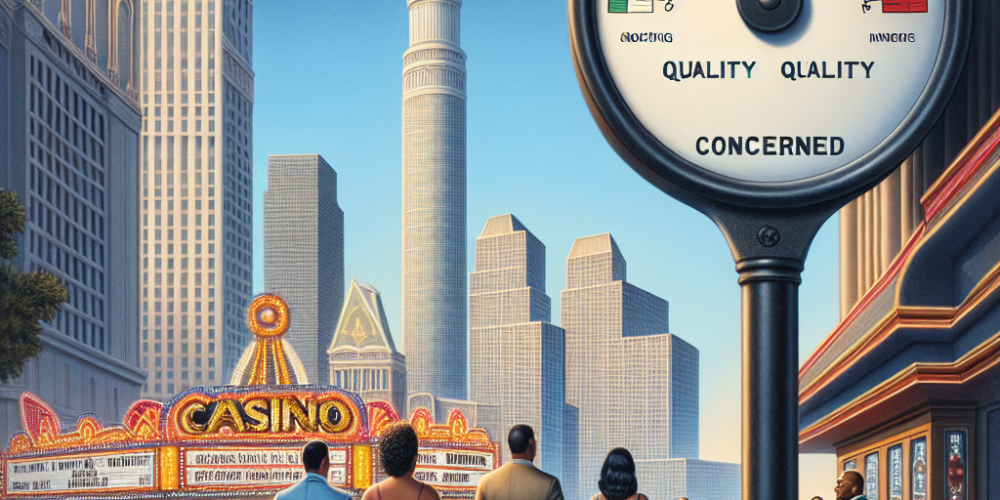A recent study by New Jersey dot com has highlighted serious concerns about air quality on Atlantic City casino floors, bringing the ongoing debate about indoor smoking to the forefront. Americans for Nonsmokers’ Rights, an NGO advocating against smoking in public spaces, has used these findings to challenge the claims made by casinos about their supposedly advanced air filtration systems.
The study suggests that these systems fall short of eliminating the risks posed by secondhand smoke. According to the NGO, the persistent issue of indoor smoke cannot be fully tackled by current HVAC technologies, regardless of the casinos’ assurances. The report has once again brought to light the dire health risks that secondhand smoke poses to patrons and employees within these gaming establishments.
The NGO’s spokesperson emphasized that despite years of evidence, the casino industry continues to resist transitioning to smoke-free environments, fearing a potential drop in business. However, nearby Parx casino, which operates without allowing indoor smoking, serves as a counter-example. This smoke-free venue has not only sustained its business but thrived, demonstrating that health-conscious policies can align with financial success.
Experts such as Terry Gordon from the NYU Grossman School of Medicine have corroborated these findings, stressing the severe impact of air pollution caused by secondhand smoke. He pointed out that the contaminants inhaled by casino-goers would lead to detectable biomarkers in their blood or tissues. This is particularly concerning given the unique and possibly more vulnerable demographic that frequents casinos compared to other workplaces.
Despite persistent calls for a smoking ban on casino floors, significant changes remain elusive. Even with the backing of some high-ranking New Jersey officials, the proposal to prohibit smoking has not gained the necessary traction. Casinos argue that the industry is still on the path to recovery post-pandemic, and implementing such a ban could hamper their financial rebound.
However, critics dismiss these arguments, citing a lack of concrete evidence supporting the claim that a smoking ban would impact revenues negatively. They argue that the casino industry’s focus on short-term profits over public health is a flawed approach and call for a reevaluation of priorities.
Furthermore, the debate over indoor smoking in casinos takes place against a broader backdrop of increasing health awareness and stricter smoking regulations in other public venues. The public’s growing shift towards healthier lifestyle choices places additional pressure on these establishments to reconsider their policies.
In contrast, some stakeholders within the casino industry maintain that any alteration in smoking policies should be approached cautiously. They suggest that the potential impact on customer experience and preferences should not be underestimated. For many patrons, the freedom to smoke on the casino floor is part of the overall entertainment experience they seek.
This aspect of customer preference underscores the complexity of implementing a smoke-free policy across all venues. While the public health benefits are clear, the challenge lies in balancing these advantages with the traditional appeal and culture that have long been associated with casino life.
In conclusion, the recent air quality study has reignited the debate on smoking in New Jersey casinos, highlighting significant health concerns while challenging the notion that smoke-free policies would harm business. It remains to be seen whether the call for change will resonate enough to overcome the industry’s reluctance and lead to substantial policy shifts. The ongoing discourse reflects broader societal trends towards health and wellness, posing both challenges and opportunities for the future of the casino industry.

David Garato is a luminary in gaming journalism, renowned for peeling back the curtain on the gaming world with his witty and insightful commentary. A decade into weaving stories from the pixelated edges of indie games to the expansive universes of AAA titles, David’s work is a thrilling blend of analysis and adventure. When not writing, he’s live-streaming, sharing his gaming exploits with an engaged and growing audience. David doesn’t just write about games; he lives them, making him a trusted guide in the gaming community.
















